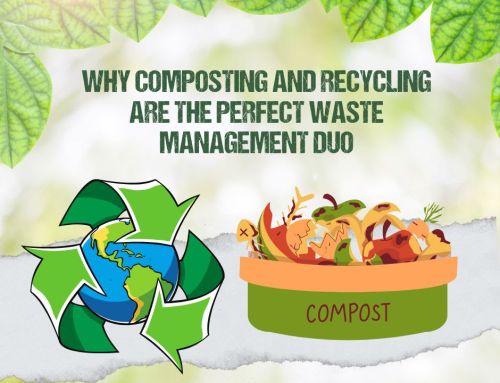Reducing Food Waste: Tips for Minimizing Food Waste at Home and in the Community
Food waste is a significant issue globally, with millions of tons of food discarded each year, contributing to environmental degradation and economic loss. Fortunately, there are practical steps that individuals and communities can take to minimize food waste and promote sustainability.
Understanding the Impact of Food Waste
Food waste occurs at various stages of the supply chain, from production and distribution to consumption and disposal. When food is wasted, it not only squanders valuable resources such as water, energy, and land but also contributes to greenhouse gas emissions in landfills as organic matter decomposes anaerobically.
In addition to its environmental impact, food waste has economic and social consequences, affecting households, businesses, and communities. By reducing food waste, we can conserve resources, alleviate hunger, and promote a more sustainable food system.
Tips for Minimizing Food Waste at Home
- Plan Meals and Shop Wisely: Create a shopping list based on planned meals to avoid buying excess food. Be mindful of expiration dates and purchase perishable items in quantities that can be consumed before spoiling.
- Store Food Properly: Store fruits and vegetables in the refrigerator to extend their shelf life. Use airtight containers to keep leftovers fresh and prevent spoilage.
- Practice FIFO (First In, First Out): Arrange food items in the pantry and refrigerator so that older items are used before newer ones. This helps prevent forgotten items from expiring.
- Portion Control: Serve appropriate portion sizes during meals to avoid overeating and food waste. Consider freezing leftovers for future meals rather than discarding them.
- Get Creative with Leftovers: Repurpose leftover ingredients into new dishes or incorporate them into soups, stir-fries, or salads. Be resourceful and experiment with recipes to minimize waste.
Promoting Food Waste Reduction in the Community
- Support Food Recovery Programs: Encourage local businesses, restaurants, and grocery stores to donate surplus food to food banks, shelters, or community organizations. These donations can help alleviate hunger and reduce food waste simultaneously.
- Educate and Raise Awareness: Organize workshops, seminars, or community events to educate residents about the importance of reducing food waste and practical strategies for doing so. Foster a culture of mindful consumption and responsible food management.
- Community Gardens and Composting: Establish community gardens where residents can grow fresh produce and learn about sustainable gardening practices. Encourage composting initiatives to divert organic waste from landfills and enrich soil health.
- Collaborate with Local Organizations: Partner with schools, nonprofits, and government agencies to develop food waste reduction programs and initiatives. Work together to address systemic issues and implement effective solutions.
By adopting these tips and promoting food waste reduction efforts in our homes and communities, we can make a meaningful difference in combating food waste and building a more sustainable future for all. Let’s embrace mindful consumption and stewardship of our precious resources. Together, we can minimize food waste and contribute to a healthier planet.
Share This Story, Choose Your Platform!
Reducing Food Waste: Tips for Minimizing Food Waste at Home and in the Community
Food waste is a significant issue globally, with millions of tons of food discarded each year, contributing to environmental degradation and economic loss. Fortunately, there are practical steps that individuals and communities can take to minimize food waste and promote sustainability.
Understanding the Impact of Food Waste
Food waste occurs at various stages of the supply chain, from production and distribution to consumption and disposal. When food is wasted, it not only squanders valuable resources such as water, energy, and land but also contributes to greenhouse gas emissions in landfills as organic matter decomposes anaerobically.
In addition to its environmental impact, food waste has economic and social consequences, affecting households, businesses, and communities. By reducing food waste, we can conserve resources, alleviate hunger, and promote a more sustainable food system.
Tips for Minimizing Food Waste at Home
- Plan Meals and Shop Wisely: Create a shopping list based on planned meals to avoid buying excess food. Be mindful of expiration dates and purchase perishable items in quantities that can be consumed before spoiling.
- Store Food Properly: Store fruits and vegetables in the refrigerator to extend their shelf life. Use airtight containers to keep leftovers fresh and prevent spoilage.
- Practice FIFO (First In, First Out): Arrange food items in the pantry and refrigerator so that older items are used before newer ones. This helps prevent forgotten items from expiring.
- Portion Control: Serve appropriate portion sizes during meals to avoid overeating and food waste. Consider freezing leftovers for future meals rather than discarding them.
- Get Creative with Leftovers: Repurpose leftover ingredients into new dishes or incorporate them into soups, stir-fries, or salads. Be resourceful and experiment with recipes to minimize waste.
Promoting Food Waste Reduction in the Community
- Support Food Recovery Programs: Encourage local businesses, restaurants, and grocery stores to donate surplus food to food banks, shelters, or community organizations. These donations can help alleviate hunger and reduce food waste simultaneously.
- Educate and Raise Awareness: Organize workshops, seminars, or community events to educate residents about the importance of reducing food waste and practical strategies for doing so. Foster a culture of mindful consumption and responsible food management.
- Community Gardens and Composting: Establish community gardens where residents can grow fresh produce and learn about sustainable gardening practices. Encourage composting initiatives to divert organic waste from landfills and enrich soil health.
- Collaborate with Local Organizations: Partner with schools, nonprofits, and government agencies to develop food waste reduction programs and initiatives. Work together to address systemic issues and implement effective solutions.
By adopting these tips and promoting food waste reduction efforts in our homes and communities, we can make a meaningful difference in combating food waste and building a more sustainable future for all. Let’s embrace mindful consumption and stewardship of our precious resources. Together, we can minimize food waste and contribute to a healthier planet.




